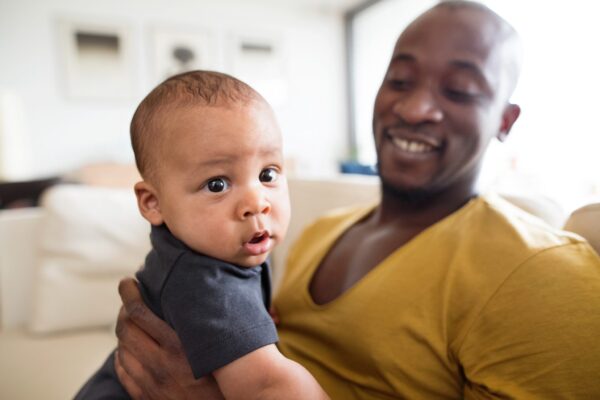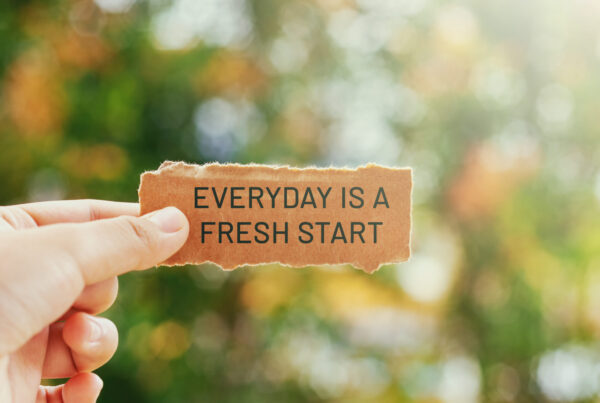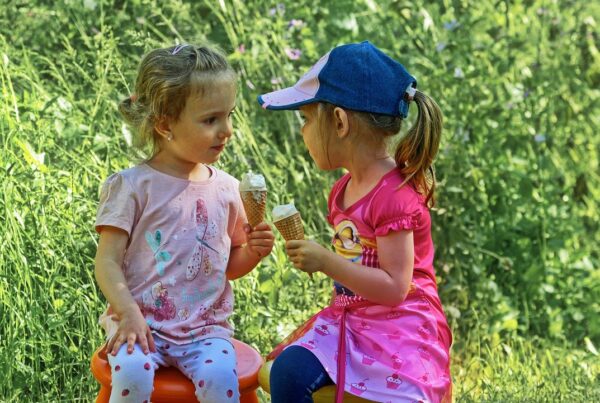By Kelly Bost, Ph.D. and Samantha Iwinski, M.S.
The Infant and Early Childhood Mental Health (IECMH) field has grown tremendously with advances in science showing the intricate links between early childhood experiences and later mental and physical health. The COVID-19 pandemic has, even more, amplified the focus on mental health. Indeed, 10-16% of young children may experience mental health conditions, which increases for children in poverty.
What do we know? Evidence consistently reveals that early childhood experiences characterized by supportive and responsive adult-child interactions foster strong brain architecture important for emotion regulation and learning. On the other hand, significant psychosocial adversity in early life is one of the strongest predisposing factors for later depression, anxiety, addictions, and physical health outcomes. The good news is that there are many ways that we can promote IECMH, and starting early helps to ensure successful pathways to healthy development. Early childhood is the opportune time to promote IECMH and prevent or intervene early in mental health challenges.
What is IECMH? IECMH specifically refers to healthy social and emotional development from birth to age 5, with the understanding that cognitive, behavioral, and socioemotional abilities are intertwined. Three core components of IECMH include the capacity to form interpersonal relationships, express and regulate emotions, and explore and learn from the environment (Ahlers et al., 2017).
Forming close and secure interpersonal relationships Safe, stable, and nurturing relationships with a caregiver in infancy and early childhood create a strong foundation for subsequent learning and behavior. Relationships with primary caregivers and other adults are among the first interpersonal experiences that impact mental health or social and emotional development. Through secure and responsive relationships with adult caregivers, children learn that their needs will be met and develop expectations about the self (as worthy of care and attention) and others (as available when needed). This builds trust in relationships and feelings of security so that children can invest cognitive resources in learning and expressing emotions in a flexible way instead of concerns or anxiety about their own safety. These early experiences help build the foundation for children’s abilities to develop subsequent healthy relationships (Center on the Developing Child, n.d.; Matte-Gangé et al., 2018).
Recognize, express, and regulate emotions Emotion plays an essential role in human connection and understanding others’ behavior. Over infancy, adults help babies to regulate overwhelming emotions and sensations by being responsive when infants cry, soothing and cuddling, smiling, and interacting during everyday routines. This consistent externally guided co-regulation eventually becomes internalized and influences children’s developing capacities for self-regulation. Self-regulation is widely considered a key socioemotional competence important for mental health, adjustment, and academic outcomes (Bendel-Stenzel et al., 2022; Matte-Gangé et al., 2018).
Explore and learn from the environment Infants and young children are born with tendencies to make sense of their worlds by exploring and learning from their environments. Engaging in everyday activities impacts brain development, cognition, and subsequent feelings of efficacy. Feelings of mastery and self-efficacy are also essential aspects of mental health.
Recognizing signs of healthy and unhealthy IECMH Across development, there are many indicators of healthy and unhealthy IECMH, and parents and early childhood professionals who spend significant amounts of time with children are in unique positions to help foster positive mental health in children. This webinar will present ways to recognize mental health concerns in infants and young children and considerations based on context and developmental period.
Understanding IECMH is critical when working with children and families. It is a foundation that can help families and children throughout their lives and encourage others to advocate for mental health education and the development of supportive infrastructures and policies. Culture, family environment, child characteristics, and community and childcare contexts all directly and indirectly influence IECMH, which will be discussed throughout our webinar.
On April 5, 2023, at 11 a.m. ET we will host the first webinar of our 2023 series, Unpacking Infant and Early Childhood Mental Health (IECMH). We will discuss what IECMH is, how it is vital for development, and how to recognize signs and symptoms of healthy IECMH and mental health concerns or challenges. We will also discuss practical approaches that professionals can use to improve it. Throughout the session, you will be able to reflect on the families you work with and your understanding of IECMH.
References
Ahlers, T., Cohen, J., Duer, J., Oser, C., Stark, D., & Usry, L. (2017). The Basics of Infant and Early Childhood Mental Health: A Briefing Paper. First Three Years. Available at https://www.zerotothree.org/document/936
Bendel-Stenzel, L., An, D., & Kochanska, G. (2022). Infants’ attachment security and children’s self-regulation within and outside the parent-child relationship at kindergarten age: distinct paths for children varying in anger proneness. Journal of Experimental Child Psychology, 221, 105433. doi.org/10.1016/j.jecp.2022.105433.
Center on the Developing Child, Harvard University https://developingchild.harvard.edu/science/key-concepts/
Matte-Gagné, C., Bernier, A., Sirois, M. S., Lalonde, G., & Hertz, S. (2018). Attachment Security and Developmental Patterns of Growth in Executive Functioning During Early Elementary School. Child development, 89(3), e167–e182. https://doi.org/10.1111/cdev.12807













